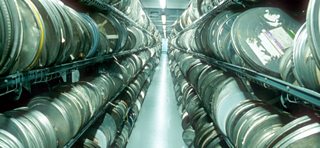
I was there to give a speech in which I argued for the continued relevance of and suggested that the UK was faced with a watershed opportunity to decide the shape of broadcasting for the coming decades.
It was a fitting location. Both the LSE and the 主播大秀 are owned by the public and are there not to turn a profit, but to be of cultural value to their shareholders.
Questions ranged from how the 主播大秀 learns from other broadcasters to how we ensure that pronunciation is correct on our news bulletins. They came from new students through to LSE alumni now in their 80s.
The 主播大秀 is also an octogenarian and, if you believe some of our critics, ripe for retirement. But, as I pointed out last night, because the 主播大秀 has a great tradition in leading technological revolutions in broadcasting, from colour TV to the , we have remained as relevant and valuable to the public today as we ever have been.
One of the many ways in which we can build on this value is by making our programme archive available to the public, finding ways to make full use of the new models - both commercial and non-commercial - that are being driven by advances in online technology.
The archive is a fabulously rich resource, tracing changes in Britain's class system, accents, landscape, architecture, social mores, race and gender politics.
During my speech I announced that we are moving ahead with the creation of an online catalogue which will be the first step in allowing people access to the archive, listing every programme we have broadcast to date and cross-referencing that schedule information with our internal programme database.
We aim to make this available by Christmas 2010 and then we will really go to work, collaborating with organisations and individuals to put flesh on the bones.
I hope that will serve as a catalyst to increasing the size and richness of this country's cultural and creative commons. If it does, it could herald a new epoch in public service broadcasting.